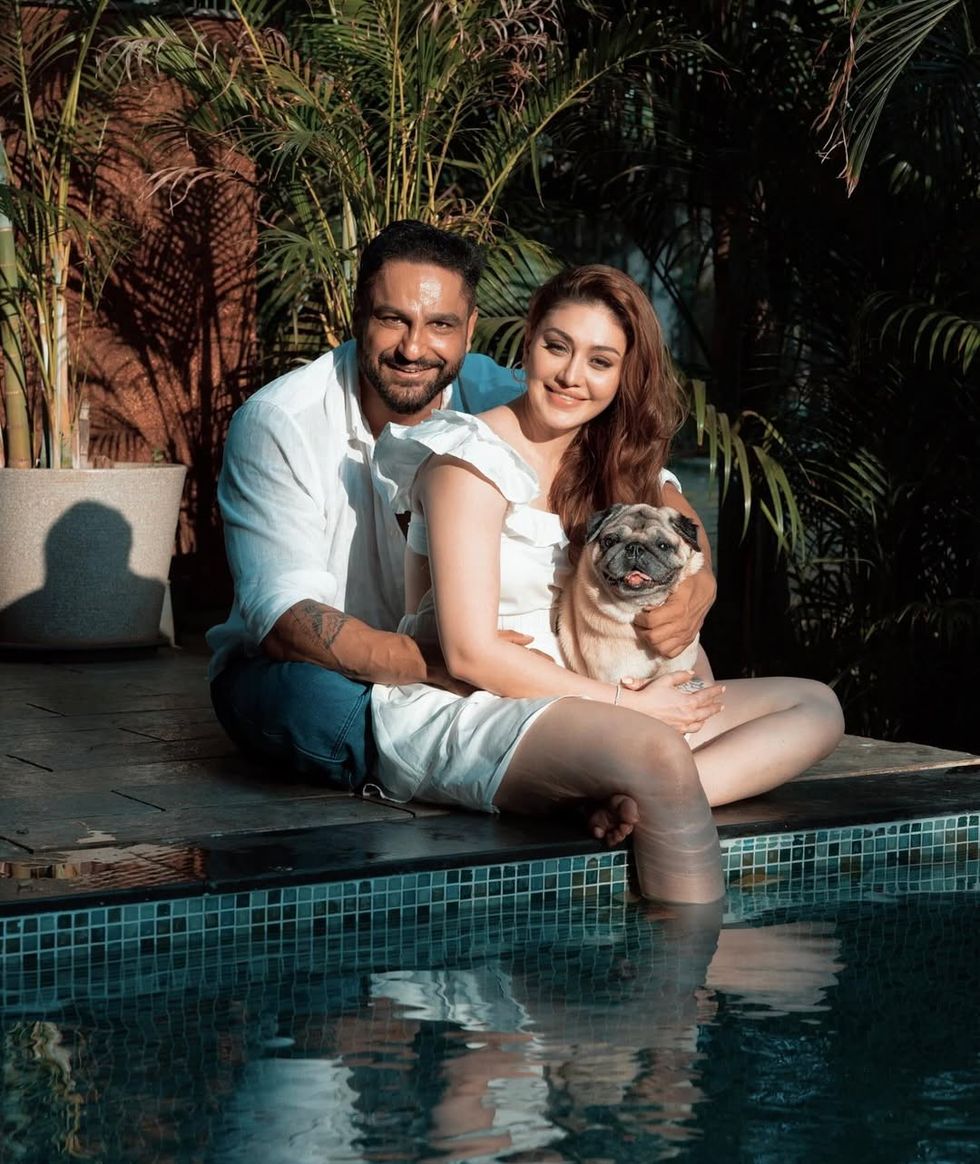The Indian and England cricket teams united to recognise the role of Indian soldiers during the First World War as part of a British armed forces charity’s movement, with the two squad captains, Virat Kohli and Joe Root, wearing a unique poppy made from khadi.
Khadi is the handwoven cotton closely associated with Mahatma Gandhi and India’s freedom struggle.
Kohli and Root became the first earlier this month to wear a unique khadi poppy. Initiated by Lord Jitesh Gadhia and commissioned especially by the Royal British Legion charity to mark the centenary of the end of the First World
War, the red cloth poppy is identical to the traditional British symbol of remembrance of the war dead.
“The khadi poppy is a hugely symbolic and highly appropriate gesture to recognise the outsized contribution of Indian soldiers during First World War,” Lord Gadhia said in a statement.
“Our identity is our destiny and so third and fourth generation Asians should know that their fathers and grandfathers didn’t just come to Britain as immigrants. Our ancestors fought for this country and for freedom and de-mocracy even though they lived in a colony at the time,” he added.
The khadi poppy was formally unveiled on September 9 at a special commemorative match day hosted by Surrey Country Cricket Club, when a half time re-enactment of a cricket match played on the Western Front between the Royal Manchester Regiment and the Sikh Regiment of the Indian Army also took place.
“Our country owes more to the sacrifices of these men than it is possible to express and this anniversary seems a particularly appropriate time to say thank you,” said Surrey County Cricket Club chief executive Richard Gould.
The Royal British Legion said the contribution of the Commonwealth 100 years ago, particularly from undivided India, was a key focus during this year’s special anniversary.
More than 1.3 million Indian soldiers served in the war across multiple continents, and over 74,000 lost their lives. They fought with courage and distinction, with 11 individuals awarded the Victoria Cross for their outstanding bravery, the armed forces charity notes.
Indians made a generous contribution of over £20 billion in today’s money, as well as providing 3.7 million tonnes of supplies, over 10,000 nurses and 170,000 animals to the war effort.















 Prada confirms Kolhapuri chappals inspired its 2026 Milan collectionInstagram/
Prada confirms Kolhapuri chappals inspired its 2026 Milan collectionInstagram/ Kolhapuri chappals have been crafted for centuries and received GI tag in 2019 iStock
Kolhapuri chappals have been crafted for centuries and received GI tag in 2019 iStock 
 Shefali Jariwala dies at 42 after cardiac arrest, industry mourns Kaanta Laga starInstagram/
Shefali Jariwala dies at 42 after cardiac arrest, industry mourns Kaanta Laga starInstagram/ Shefali Jariwala was married to actor Parag Tyagi,Instagram/
Shefali Jariwala was married to actor Parag Tyagi,Instagram/